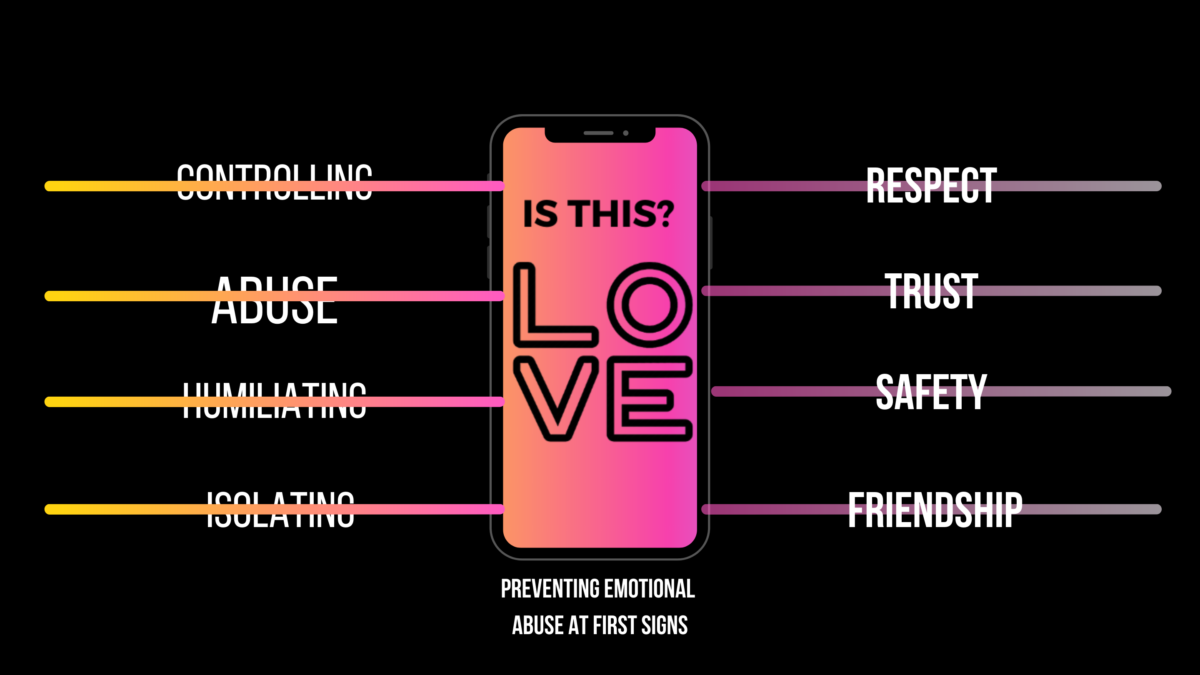
This project is focused on the prevention and early intervention of emotional abuse within an intimate relationship, which involves a person’s choice of words or actions to control, dominate, intimidate, or degrade the other person. Despite being the most common type of abuse, emotional or psychological abuse is often hidden from society and most of the time it is suffered in silence. Emotional abuse leaves severe psychological and mental damages but the first signs of abusive behavior are not bruises, black eyes or broken bones.
The vast majority of people suffering emotional abuse do not ask for help or, when looking for it, they face an additional challenge: most support services are focused on treating high and imminent risk cases and they don’t engage with them.
How might we help to recognise abuse and recover from it by giving support in early stages to cope with conflicting emotions that block their capacity to take healthy and strong decisions?
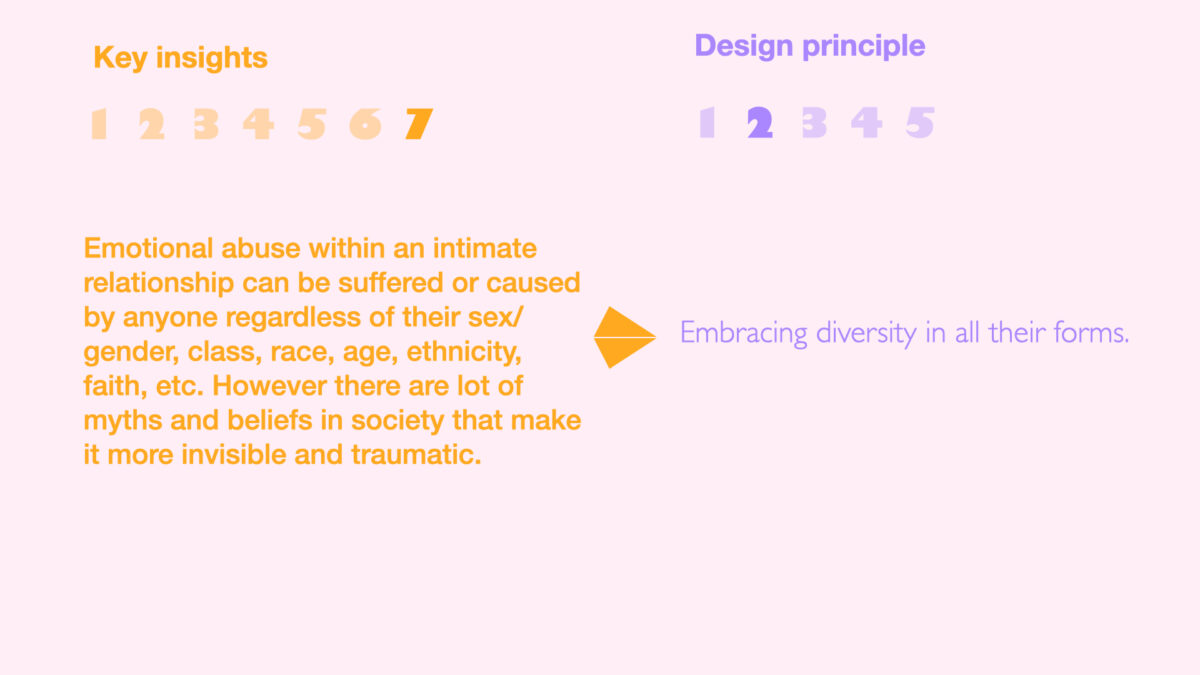
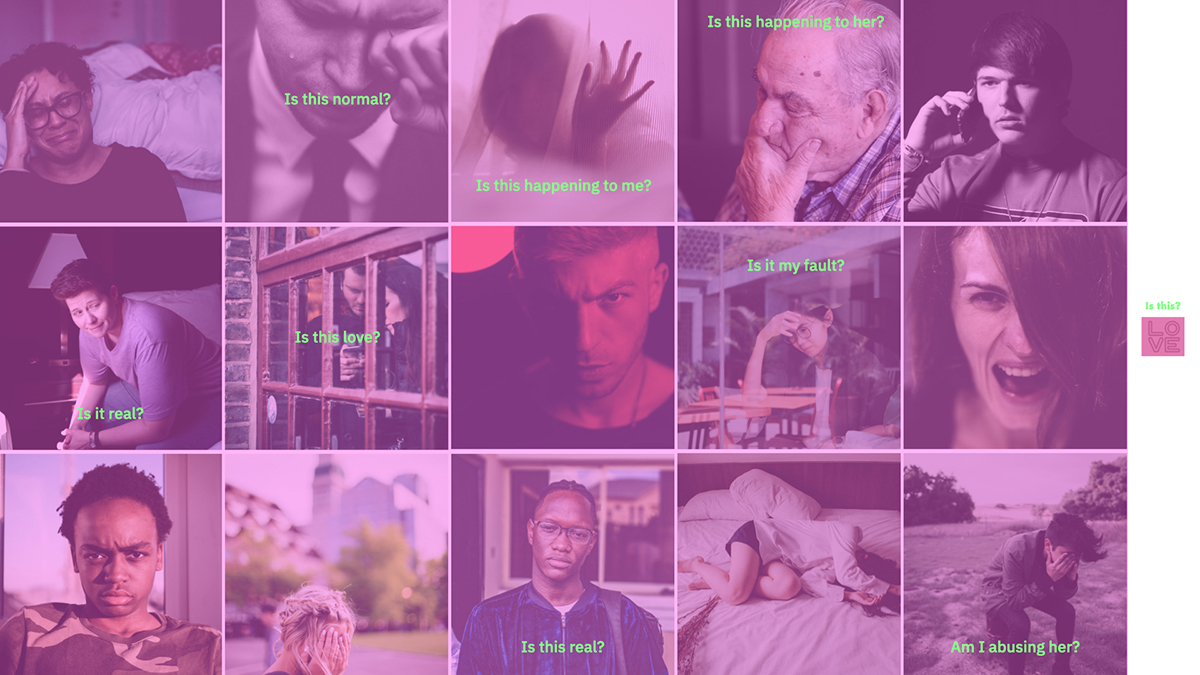
“He isn’t letting me going out and have fun with friends (….) he is checking my phone and my computer without my permission, he hacked into my Facebook account”. (Interviewee, 26 years old; suffered partner emotional abuse)
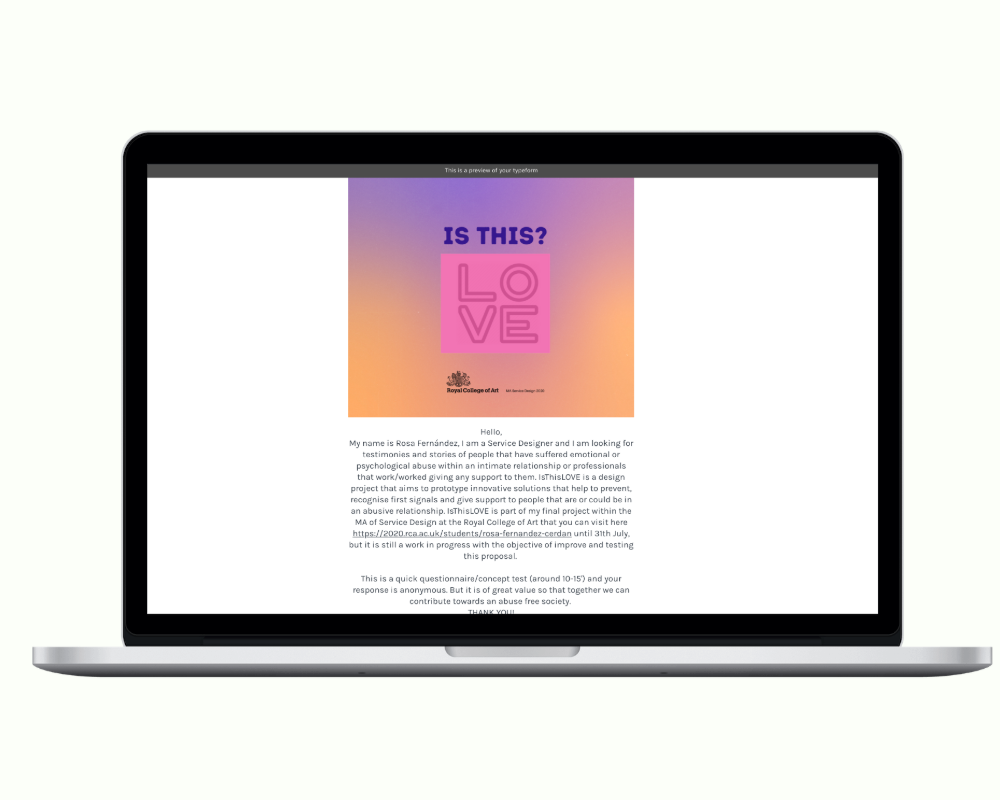

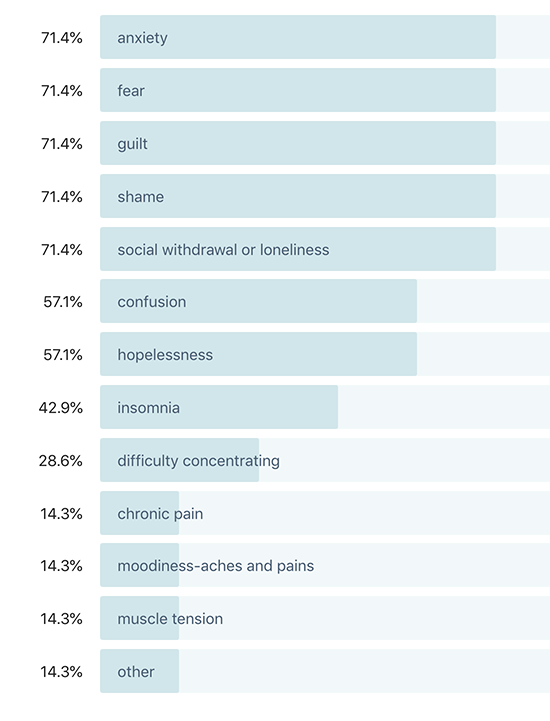
Recognising and acknowledging emotional abuse demands time and effort and every experience of abuse is unique. IsthisLOVE gives them the confidence to talk and share their experience with abuse by providing access to peer and specialised support. The platform acts as a connector between a network of specialised coaches providing online counselling and the peer mentors (former users), who have personal experience of recovery from abuse and offer live communication.
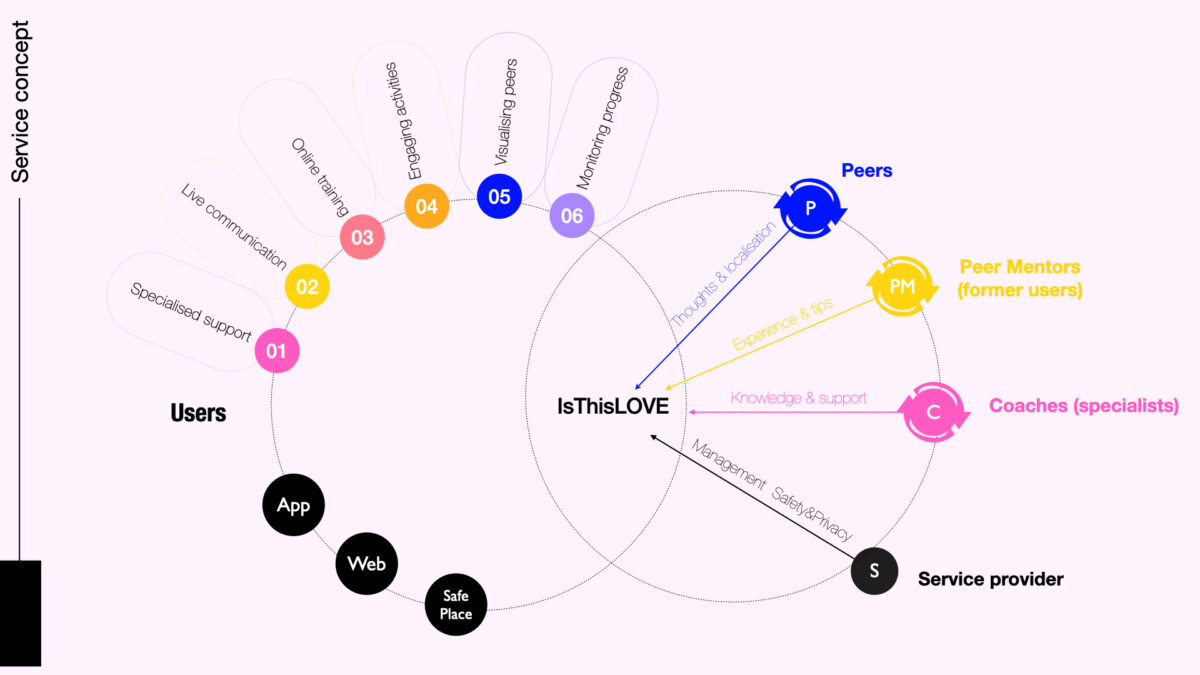
Therefore, IsthisLOVE offers a delicate, flexible and valuable experience to all the users regardless of their circumstances (age, relationship status, safety conditions, social/economic/cultural factors, availability), encouraging them but giving them control to interact with the service in their preferred way.
The offered choices are:
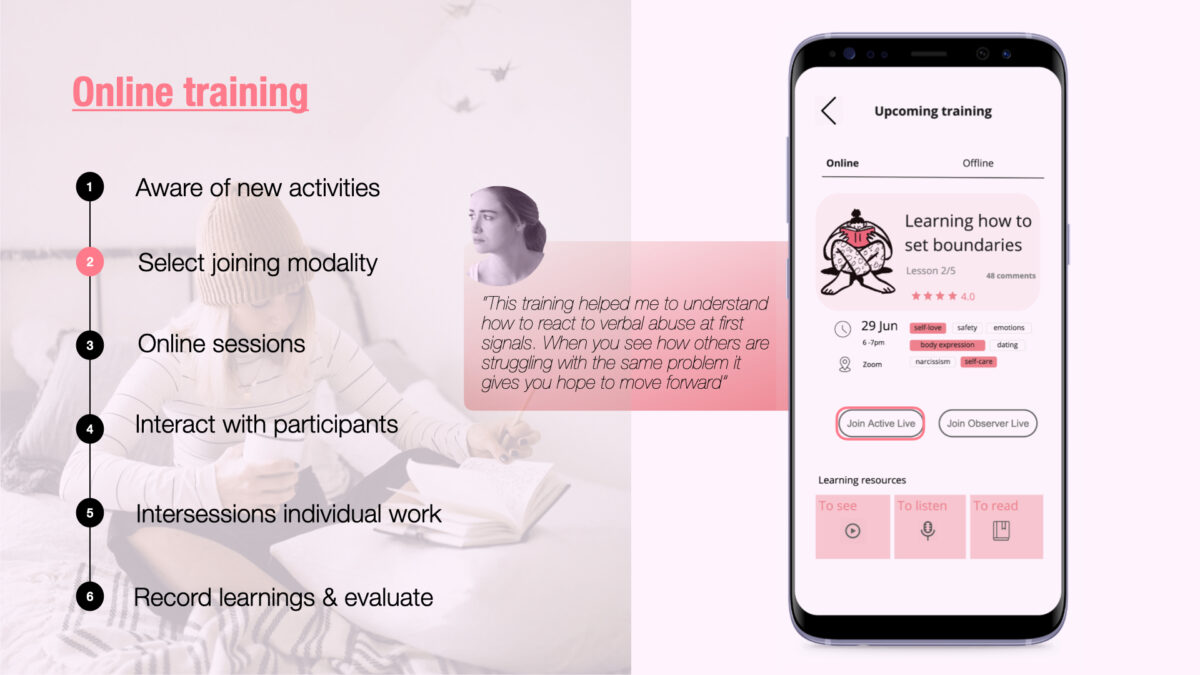
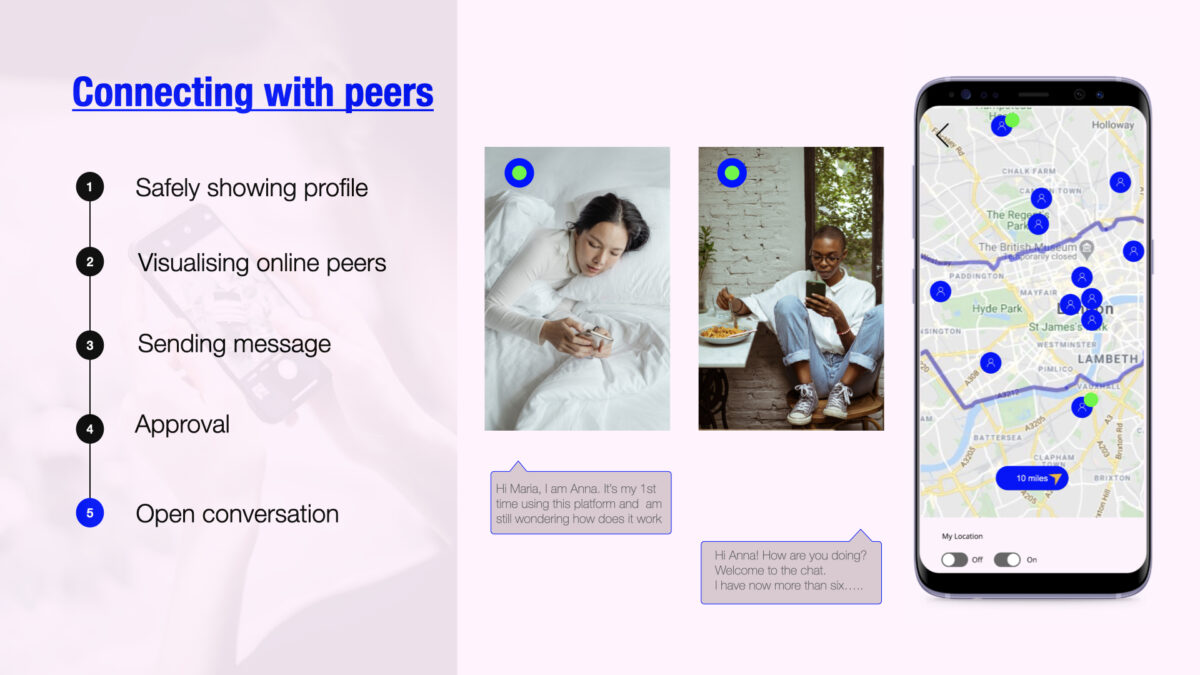
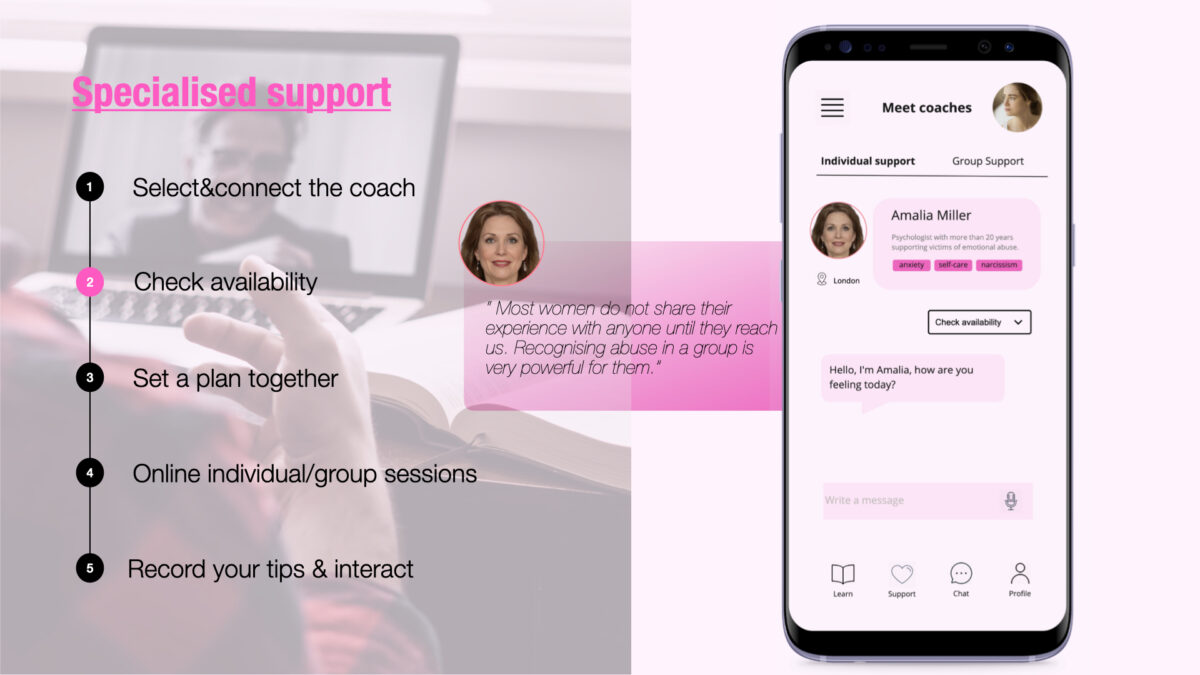
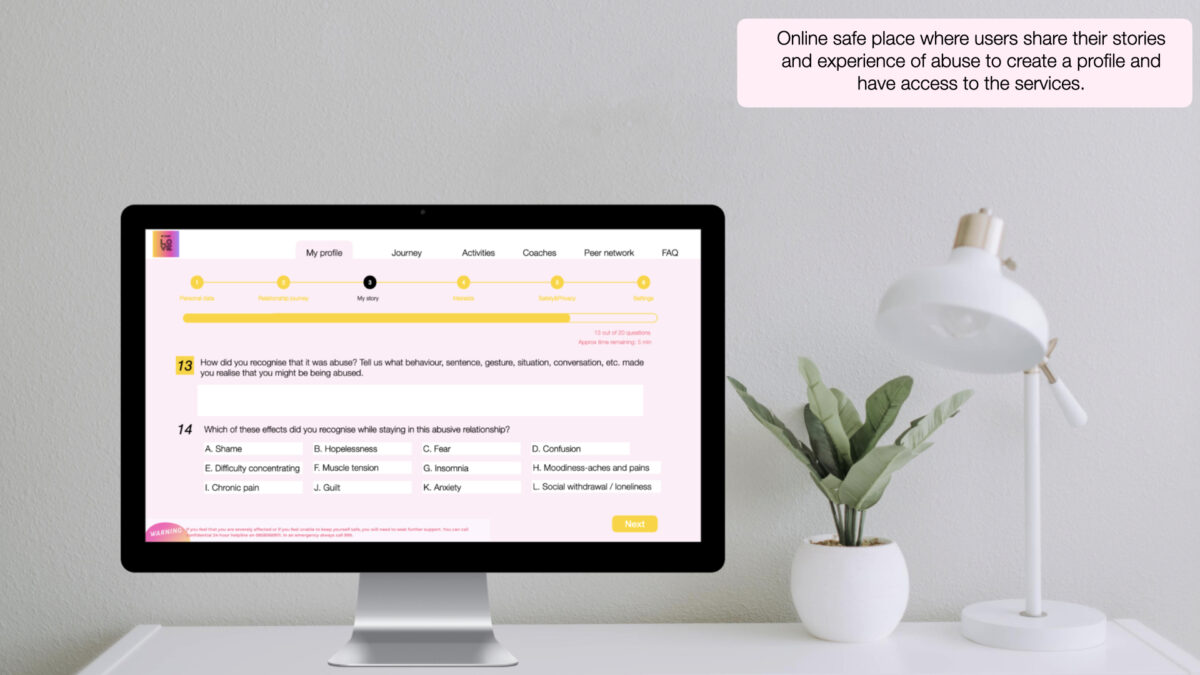
One of the challenges facing the design process has been the lockdown situation which led me to explore and combine digital and physical methods, from collage to remote work sessions and the whole primary research, using a diversity of remote digital tools.
A second challenge was defining the purpose of a service for unmet needs. The absence of services made it difficult. However, this triggered a feeling of doing research about this invisibility from a systemic approach by looking at three levels. A central level, understanding the journey of people who have experienced abuse and their needs. The second level, mapping the current public services and private professionals that support abuse in general. Finally, the opinion, awareness, and myths around emotional abuse in the wider society.
Collecting the testimonies of 30+ people that had suffered abuse and the experience of 20+ professionals including charity staff, lawyers, psychologists, social workers, trainers and policy makers.
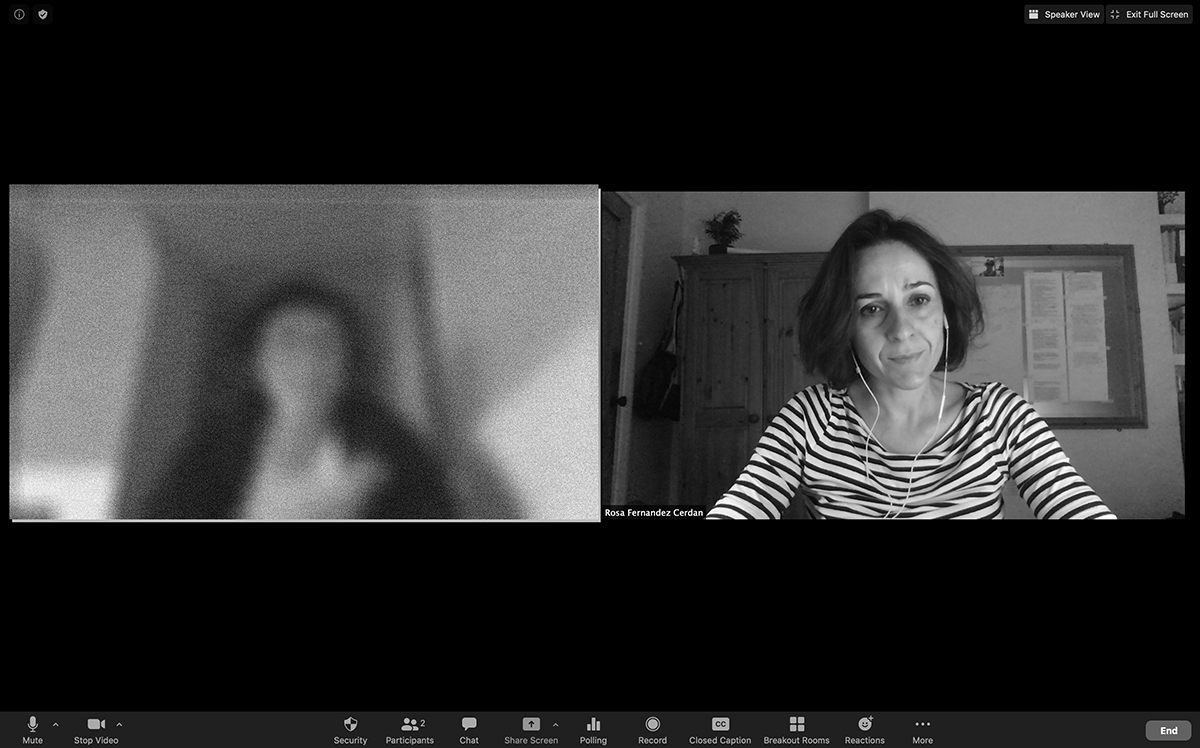
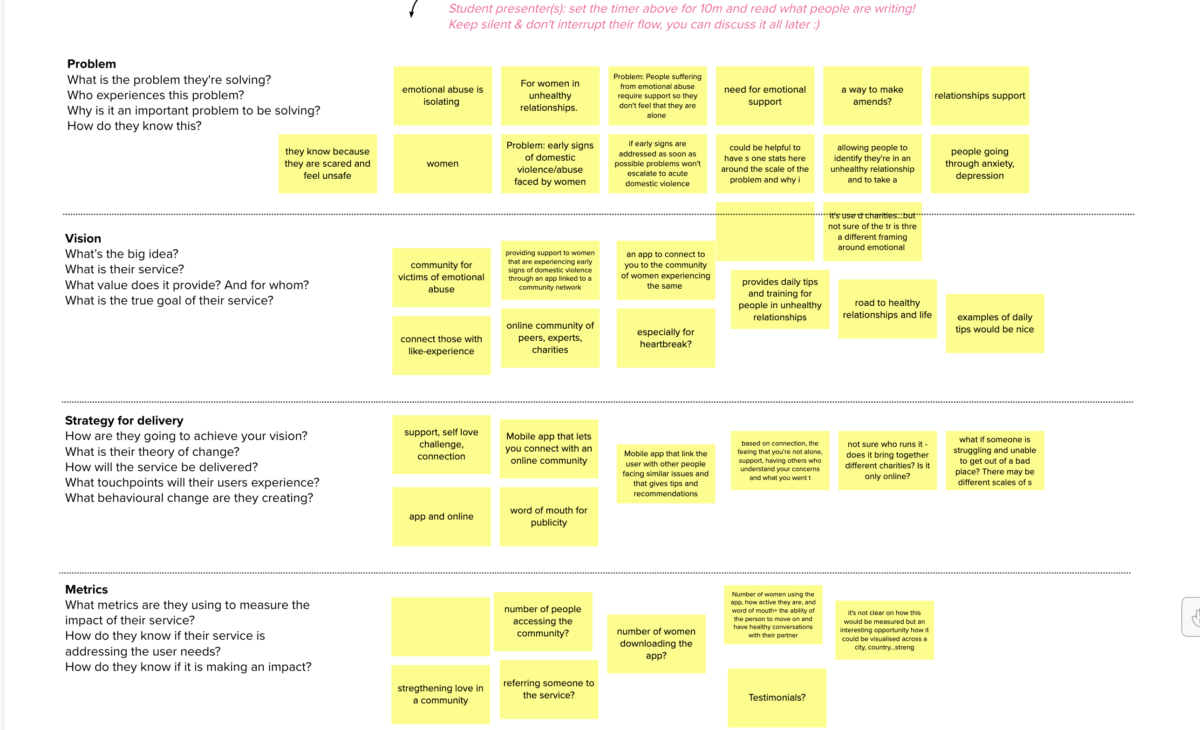
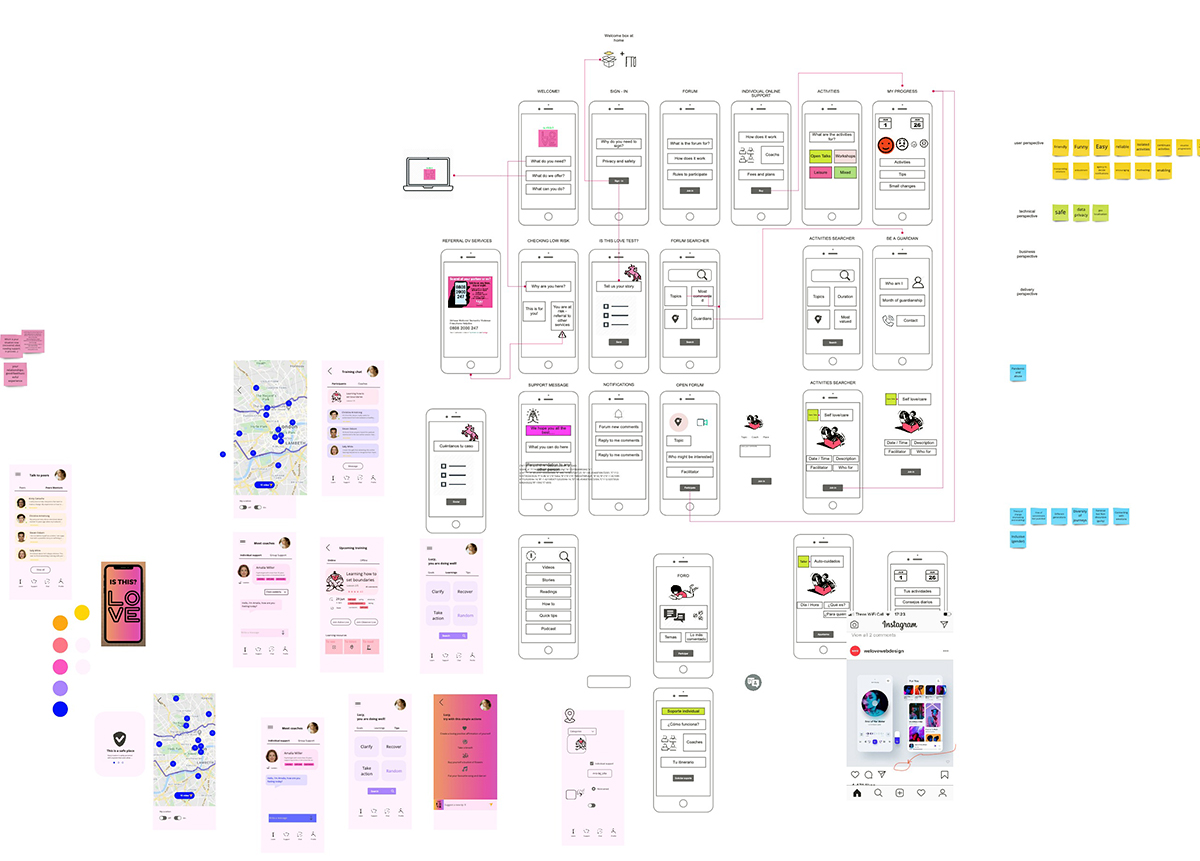
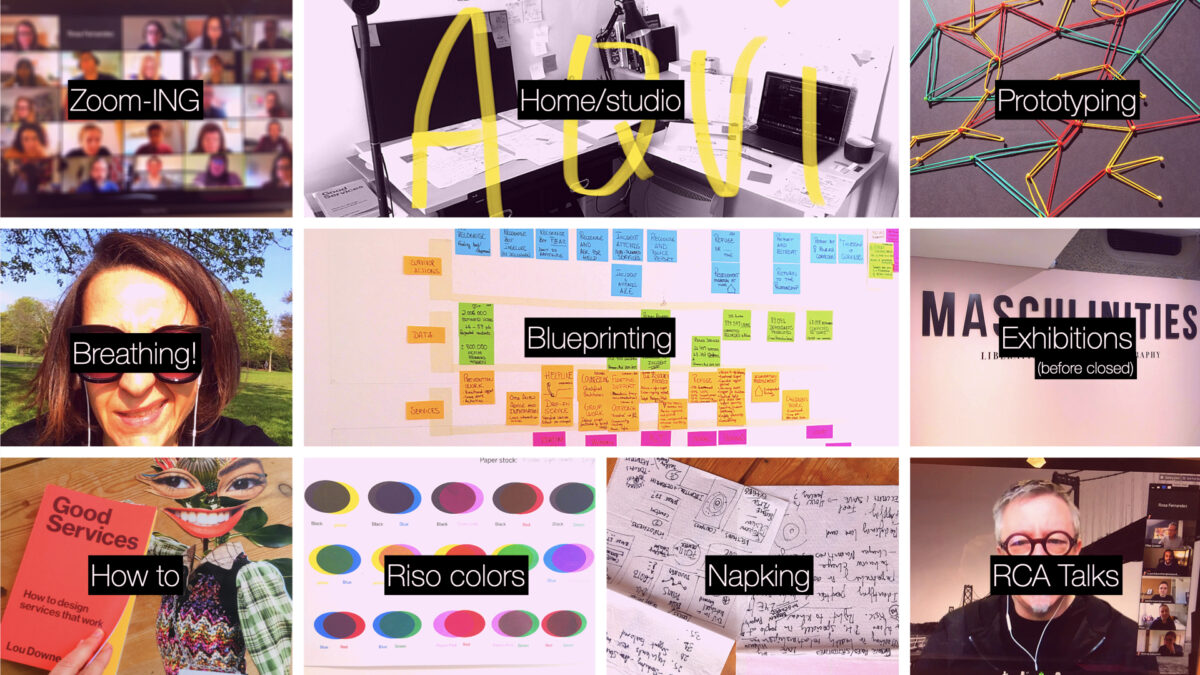
IsThisLOVE is a new generation of public services to tackle emotional abuse, in the middle of a communication campaign, and those services that prioritise support to high-risk cases. I challenged myself to design a service for that gap between “that works” and is “good for the user of the service; good for the organisation providing it; and good for society as a whole” (Downe, L. Good Services, 2020).
For the users, the achievement is to complete an individual journey that gives them confidence and agency to recognise emotional abuse, take action, and move forward. For the service provider, IsthisLOVE introduces an agile and distributed support service delivery by introducing a digital system. The platform leverages valuable data collected from the coaches and the evaluation of users that has the potential to impact on the design of new policies and, in turn, visualising and de-stigmatizing abuse among society.
“I found IsthisLOVE fascinating. I hope that this app is something that can actually be developed.” (Practice Advisor working in victim’s support)
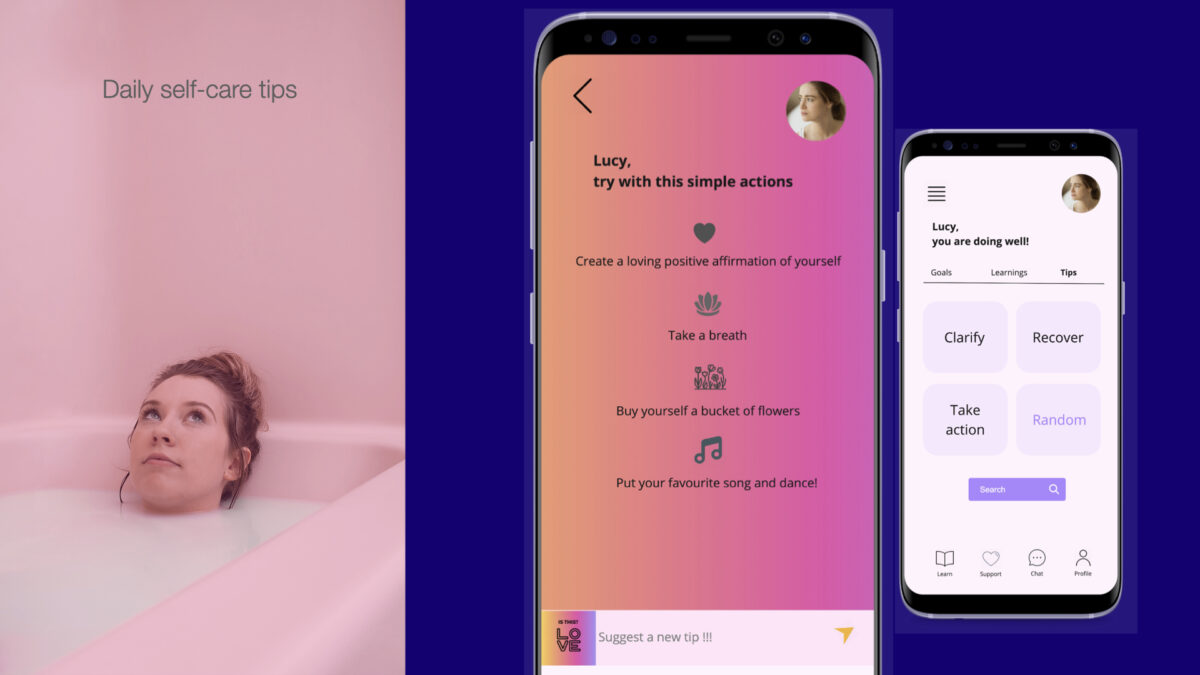
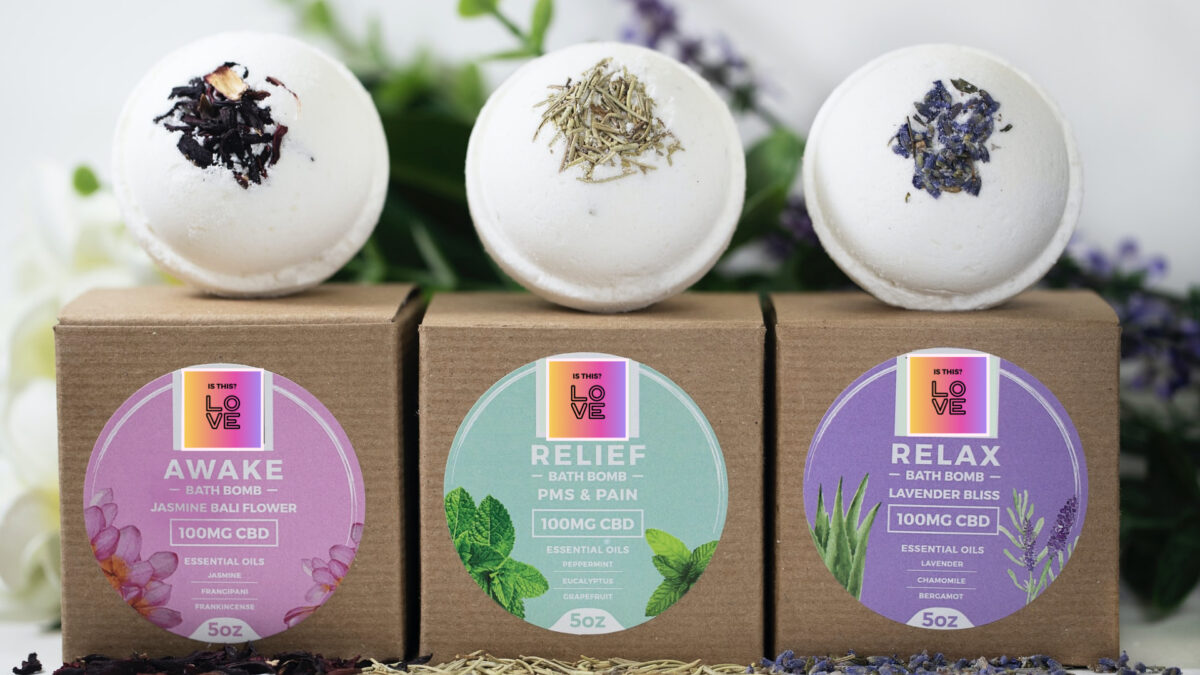
Client: Final project | MA Service Design | Royal College of Art
Team: Solo project
Date: February – May 2020
My Role: Service Designer | Social Designer | Researcher
Key Methods: Concept sketch. Remote research & prototyping. Wireframes.